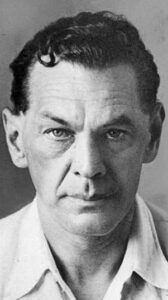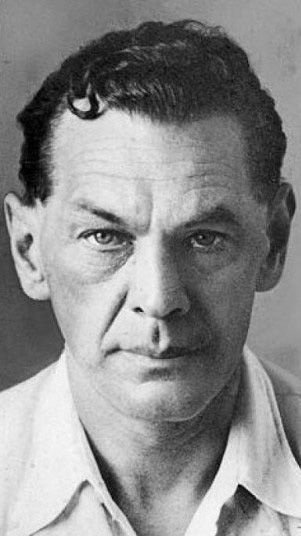Richard Sorge: The Spy Who Changed the Course of World War II

In the shadowy world of espionage, few names stand out like Richard Sorge. This Soviet spy, operating deep in the heart of Tokyo during World War II, is credited with providing crucial intelligence that altered the course of history.
Through his remarkable ability to blend into enemy territory, Sorge gathered secrets from both Nazi Germany and Imperial Japan, relaying them back to the Soviet Union at a time when information could mean the difference between victory and defeat. His work not only saved the Soviet Union from catastrophe but also left an indelible mark on the craft of espionage itself.
Who Was Richard Sorge?
Richard Sorge was born on October 4, 1895, in Baku, which is now part of Azerbaijan, to a German father and a Russian mother. His early life was shaped by his experiences during World War I, where he served in the German army. It was here that his political views began to shift, ultimately leading him toward communism.
After the war, Sorge became involved with Marxist groups in Germany, and by 1920, he had fully embraced communism. His intelligence work began when he joined the Soviet Union’s military intelligence (GRU) in the late 1920s. This shift from a nationalistic German soldier to a fervent Soviet spy defined Sorge’s future role in the world of international espionage.
Sorge’s Political Ideologies
Sorge’s commitment to communism was not born overnight. His disillusionment with nationalism and the horrors of war led him to seek out ideologies that promised a fairer world. By the time he became a Soviet spy, Sorge was fully committed to the communist cause. His ideological alignment made him a loyal agent, willing to risk everything to serve the Soviet Union.
Sorge’s Role in Japan During World War II
In 1933, Richard Sorge was sent to Japan under the guise of a German journalist, working for newspapers like the *Frankfurter Zeitung*. His mission? To infiltrate the German embassy in Tokyo and gather intelligence on both Nazi and Japanese military plans.
Sorge quickly established his cover as a charming, intellectual foreign correspondent. He became close friends with many high-ranking officials, including Germany’s ambassador to Japan, Eugen Ott. Ott trusted Sorge implicitly, providing him with sensitive information about Nazi plans in Europe and Japanese ambitions in Asia.
The Significance of Sorge’s Intelligence Network
Sorge’s success was not a solo effort. He built a small but highly efficient spy network in Tokyo, which included Japanese communists like Hotsumi Ozaki, who had access to the inner workings of the Japanese government. This network allowed Sorge to gather a wealth of information, often relaying crucial details back to Moscow through coded radio transmissions.
The strength of his network lay in his ability to recruit individuals who believed in the Soviet cause, even at the risk of their own lives. His team’s dedication made it possible for Sorge to maintain a steady flow of intelligence without arousing much suspicion for several years.
Sorge’s Critical Contributions
One of Richard Sorge’s most significant contributions to the Soviet war effort came in 1941 when he alerted Moscow about Operation Barbarossa, the German plan to invade the Soviet Union. His warning allowed the Soviets to prepare for the onslaught, though they still suffered heavy losses in the early stages of the invasion.
Perhaps even more crucial was Sorge’s intelligence regarding Japan. He informed the Soviets that Japan would not attack the USSR from the east, a piece of information that allowed Stalin to transfer troops from Siberia to the Western front, significantly strengthening the Soviet defense against Nazi forces.
The Dangers of Espionage
Despite his successes, Sorge constantly lived under the threat of exposure. Both the German and Japanese intelligence services were highly active in Tokyo, and the slightest misstep could have led to his capture. The pressures of maintaining his double life, knowing that one false move could result in torture and death, were immense.
Sorge’s Arrest and Interrogation
In 1941, Richard Sorge’s luck ran out. He was betrayed by a member of his own network, which led Japanese authorities to arrest him. After an exhaustive interrogation process, during which Sorge remained remarkably composed, he confessed to his role as a Soviet spy. Even under torture, Sorge refused to give up his entire network, showing an incredible level of dedication to his cause.
Sorge’s Execution
On November 7, 1944, Richard Sorge was executed by hanging in Sugamo Prison in Tokyo. His death marked the end of one of the most successful espionage careers in history, but his influence continued to ripple through the world of intelligence. Many of his colleagues were also arrested, and his spy ring was dismantled shortly after his capture.
Why Richard Sorge Was Overlooked for Decades
Despite his immense contributions, Sorge was largely overlooked by the Soviet Union for many years. It wasn’t until decades later, during the Khrushchev era, that he was posthumously awarded the title “Hero of the Soviet Union.” Western recognition of his exploits also came late, partially due to the secretive nature of his work and the tense relations of the Cold War era.
Sorge’s Legacy in Modern Espionage
Today, Richard Sorge is regarded as one of the greatest spies in history. His ability to operate within hostile territory for so long, gathering critical intelligence, is a testament to his skills as a master spy. Modern intelligence agencies study his techniques to this day, especially his talent for blending in, gaining trust, and creating valuable human networks.
Was Richard Sorge the Greatest Spy of All Time?
There’s a compelling case for considering Richard Sorge as the greatest spy of all time. Few spies in history have managed to infiltrate not just one, but two of the most powerful Axis nations during World War II. His intelligence directly influenced the Soviet Union’s ability to withstand the Nazi invasion and ultimately shaped the outcome of the war. While other spies, like the infamous Cambridge Five or Mata Hari, may be more widely known, Sorge’s impact on history is arguably far greater.
Lessons from Richard Sorge’s Espionage Work
Richard Sorge’s success wasn’t just about collecting information. It was about building trust, both with his superiors in the Soviet Union and with the very people he was spying on. His dedication to the communist cause made him fearless, willing to risk his life to ensure that the Soviet Union had the intelligence it needed. In many ways, his work exemplifies the dangerous, often unsung role of spies in shaping world events.
Impact on World War II’s Outcome
Without Richard Sorge’s intelligence, the Soviet Union may have faced a much tougher challenge in defending against the Nazi invasion. His warning about Japan’s intentions freed up crucial Soviet forces, which played a key role in turning the tide against Hitler’s armies. It’s not an exaggeration to say that Sorge’s work helped shape the outcome of World War II.
Richard Sorge’s legacy as one of the greatest spies in history is undeniable. His intelligence work not only provided critical information to the Soviet Union but also had a profound impact on the outcome of World War II. By infiltrating the highest levels of both the German and Japanese governments, Sorge was able to pass along crucial details that helped Stalin make strategic decisions, ultimately influencing the course of the war. His dedication, resilience, and ability to operate in dangerous environments make him a figure worthy of admiration, even if his contributions were overlooked for many years.
Sorge’s life exemplifies the human cost of espionage—living under constant threat, risking personal relationships, and eventually sacrificing his life for his cause. Yet, his work demonstrates the pivotal role spies can play in shaping history. Today, Richard Sorge is remembered not just as a Soviet hero, but as an enduring symbol of courage and commitment in the shadowy world of intelligence gathering.
FAQs
1. Who betrayed Richard Sorge?
Richard Sorge was ultimately betrayed by a member of his own spy network, although the exact identity remains debated. It is believed that Japanese authorities became suspicious due to the actions of one of his associates, leading to Sorge’s arrest in 1941.
2. What made Richard Sorge so effective as a spy?
Sorge’s effectiveness came from his ability to blend into his surroundings and gain the trust of powerful individuals. As a German working in Japan, he posed as a journalist, using his charm and intellect to gather sensitive information from Nazi and Japanese officials without arousing suspicion.
3. Did Sorge ever meet Stalin or other Soviet leaders?
There is no record of Sorge meeting Stalin personally. However, Sorge maintained regular communication with Soviet intelligence, particularly the GRU, during his time in Japan. Despite his critical contributions, he did not receive much recognition from the Soviet leadership during his lifetime.
4. How did Richard Sorge avoid suspicion for so long?
Sorge’s ability to operate undetected for years was largely due to his convincing cover as a respected journalist and his close relationships with influential individuals like German ambassador Eugen Ott. His careful manipulation of his public persona and network made him seem trustworthy and loyal to the Axis powers.
5. Is there a movie or book about Richard Sorge’s life?
Yes, several books and movies have been made about Richard Sorge’s life. One of the most notable is the film *Who Are You, Mr. Sorge?* released in 1961. Additionally, books like *The Man with Two Faces* by Gordon W. Prange and *An Impeccable Spy* by Owen Matthews provide detailed accounts of his espionage activities.

